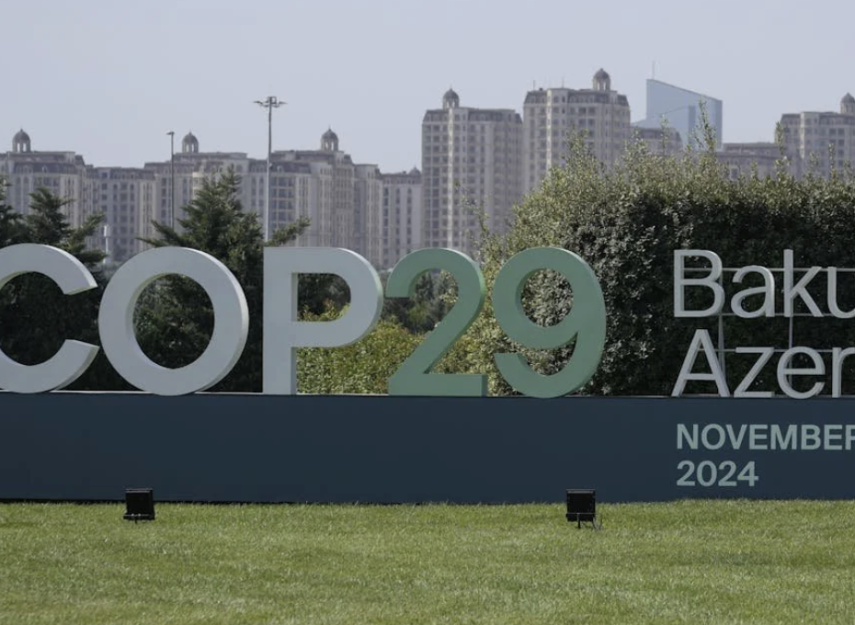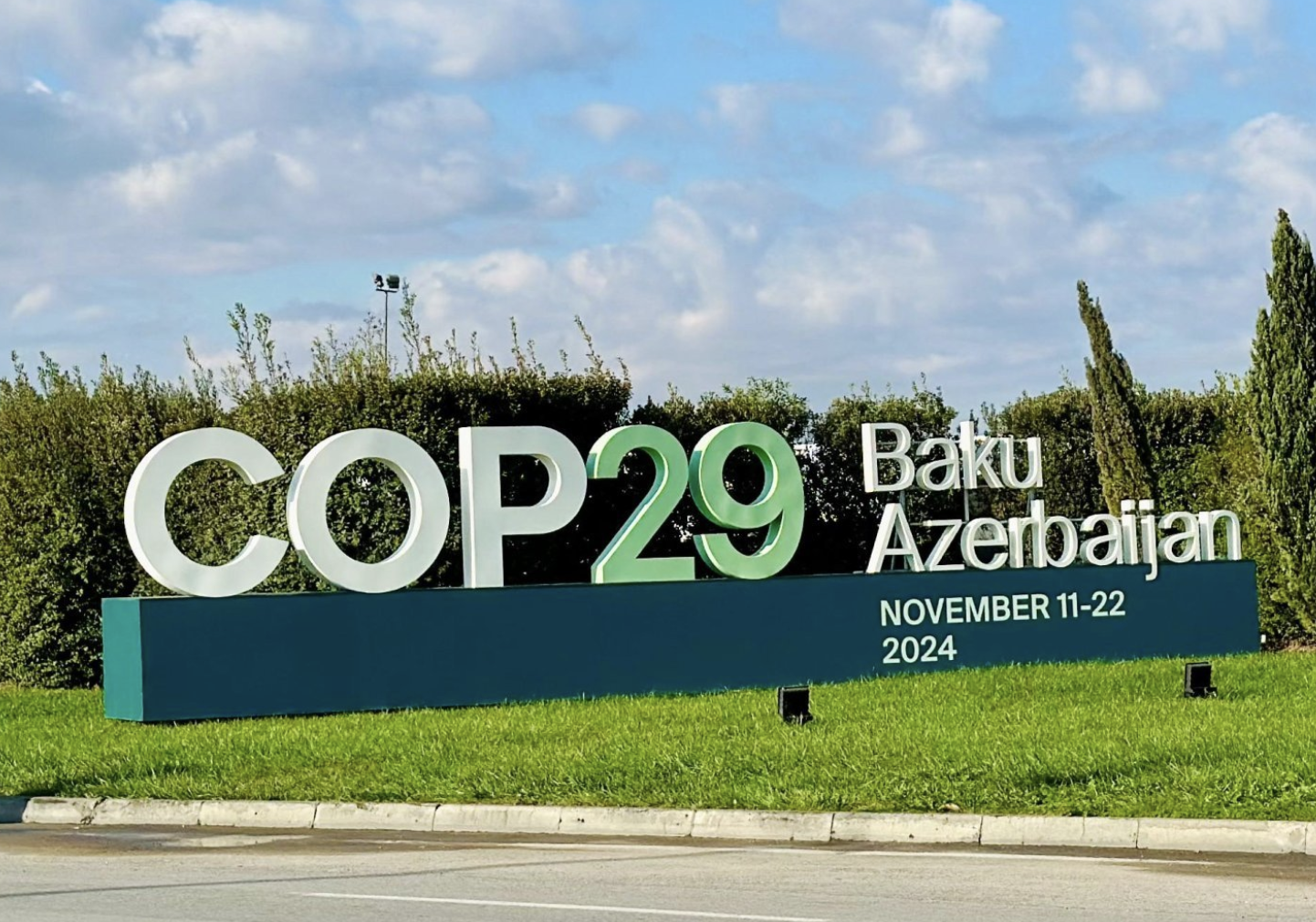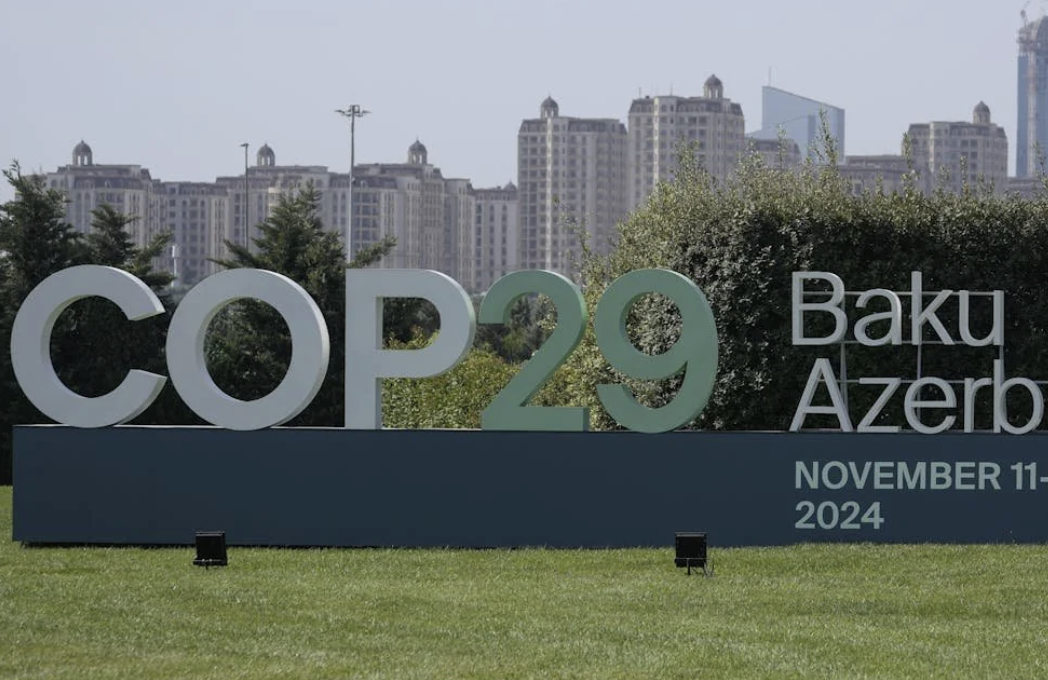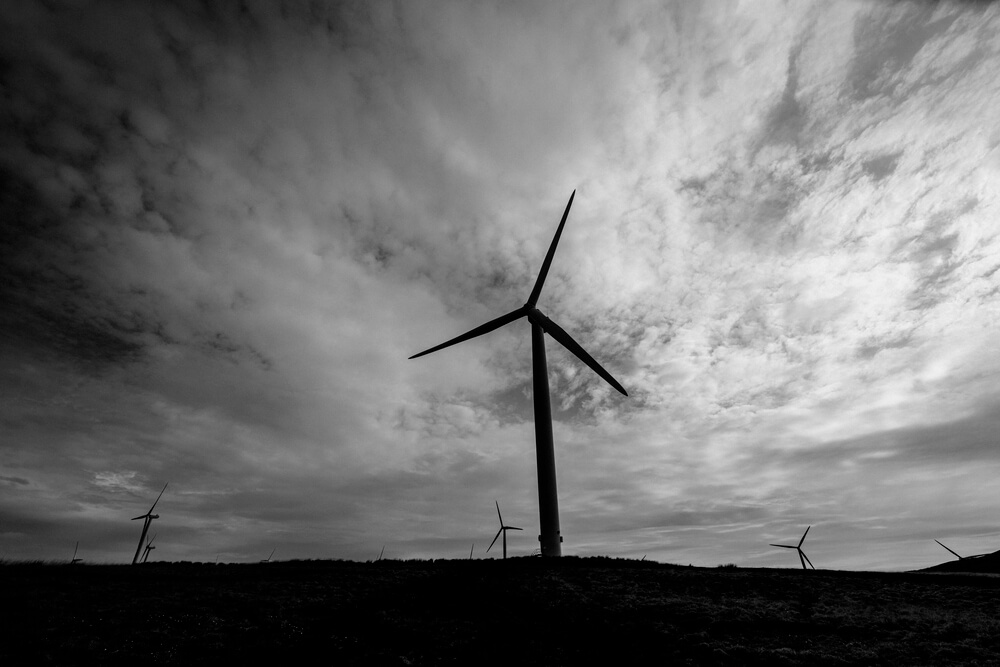
COP29 is (finally) over
Over the last few days, representatives of 200 countries gathered in Baku, Azerbaijan for COP29. Most readers know that this is the “29th Conference of the Parties to the United Nations Framework Convention on Climate Change (UNFCCC)” – the annual global meeting where countries discuss and negotiate actions to address climate change. This year’s conference was interesting in many ways – however, mostly not interesting in a good way:
First, the location was interesting
The host country, Azerbaijan, exports almost exclusively fossil fuels. The president called oil and gas “God’s gift”. Therefore, there was plenty of controversy around the obvious conflict of interest of the host country. Read more in our other blog articles on COP29 here.
Second, the boldness of some participants was interesting
There were continuing rumors about side deals that were made or planned during the summit. An undercover investigation revealed how the Azerbaijani government used its position as host of COP29 to facilitate discussion of new fossil fuel deals at the annual UN climate conference. Read more in our other blog articles on COP29 here and here.
Last but not least, the “outcomes” (or lack thereof) of COP29 were also interesting
COP29 brought notable discussions but failed to deliver the decisive action needed to confront the climate crisis threatening humanity and economies worldwide. Key takeaways from Baku include:
- Climate Finance Goals: The “New Collective Quantified Goal” (NCQG) aims to secure $300 billion annually by 2035. Developed nations are expected to lead, with optional contributions from developing countries like China. While ambitious, this figure pales compared to the trillions experts say are needed.
- No agreement on Fossil Fuel Phase-Out: Fossil fuel reduction became a heated topic, but negotiations stalled. A draft from the UAE talks lacked support, deferring decisions to COP30. Delegates called the draft insufficient, jeopardizing progress toward renewable energy and deforestation targets. Delays also leave the guidance for Nationally Determined Contributions (NDCs) unfinished, with little hope of meeting the February 2025 renewal deadline.
- Carbon Market Rules: After years of debate, COP29 finalized rules for global carbon trading under Article 6 of the Paris Agreement. While seen as a breakthrough by some, critics worry it may enable greenwashing rather than driving real emissions cuts.
Developments in Baku during the COP29 week
On Sunday morning, nearly 200 ministers and officials convened at Baku’s Olympic Stadium for the final session of COP29. They faced the tension between fossil fuel reliance and the science urging a temperature rise limit of 1.5°C. Most agreed that science had lost. “The 1.5°C target was already on life support; now the bed feels broken,” said Juan Carlos Monterrey, Panama’s climate envoy. Even though some consensus was reached after all, the Bakl conference was hardly a breakthrough.
At the summit’s core were the Climate Finance Goals, intended to finance poorer nations’ adopation to low-carbon systems and weather-proof infrastructure. Experts estimate $1.3 trillion annually is needed by 2035 to meet the 1.5°C target. However, negotiators struck a deal that is far from that number, and half-hearted at best. The least developed countries (LDCs) bloc declared, “This isn’t just failure; it’s betrayal”.
Developed nations committed $300 billion annually. However, vague terms diluted this promise: Funding will combine grants, loans, and private investments. Proposals for levies on shipping and fossil fuel industries remain unresolved. Private investment must cover the majority of the $1.3 trillion goal. Where does the rest of the money come from? Not clear, based on the “decisions” made in Baku. So: Unlikely to flow, in our opinion.
Rich nations still defended the agreement. “Public finances are stretched, yet we pushed to deliver,” said Ed Miliband, UK Energy Secretary. Still, critics argued the outcome offered little to vulnerable nations.
The week in Baku
From the beginning, the conference was up to a rough start. It opened on November 11 under the shadow of Donald Trump’s reelection days earlier. Trump’s platform pledged to withdraw from climate agreements and intensify fossil fuel drilling. Already in his first term, Trump famously withdrew the US from the climate agreement, and declared climate change as “one of the greatest scams of all time”.
By Thursday, the talks neared collapse. A draft text contained placeholder “X” marks for key figures. When developed nations proposed 250 bn USD – much lower than expected by many – outrage ensued. Mohamed Adow of Power Shift Africa called the offer “a slap in the face.” Diplomacy faltered as blocs like AOSIS and LDCs staged walkouts.
Late Saturday night, Babayev presented minor measures as the main text remained unresolved. Negotiators scrambled behind the scenes. The $300 billion figure gained consensus only at midnight, avoiding total collapse. However, the text lacked commitments to transition away from fossil fuels, a key demand at COP28. Especially Saudi Arabia obstructed language on fossil fuel transition throughout the talks. Despite efforts by multiple nations to preserve the wording, it was ultimately postponed. By 5 a.m., exhausted delegates accepted a flawed deal.
COP29 ended on Sunday with frustration on all sides. Developing nations called the deal inadequate and unjust, while developed countries failed to secure commitments to transitioning from fossil fuels. Among the many reasons – besides the conflict of interest of many key players were probably the lack of expertise of many delegates. This created stronger reliance on Azerbaijan’s presidency. However Environment Minister Mukhtar Babayev adopted a neutral convening role, frustrating parties who felt the need for a stronger leadership. The deferred decisions now burden COP30 in Belém, Brazil, which will coincide with Trump’s presidency and mounting global divisions.
More learnings from COP29
In recent years, COP conferences have drawn increasing participation from NGOs, academics, and private sector representatives alongside state leaders. These stakeholders gather to exchange insights, address challenges, and propose solutions to the global environmental crisis. Discussions at this year’s COP29 highlighted some additional themes:
- Collaboration: Major corporations now acknowledge the necessity and advantages of collaborative efforts. Sharing climate-relevant data across value chains and exchanging best practices in decarbonization have emerged as vital strategies. Businesses increasingly recognize the economic opportunities in cooperative approaches to addressing climate change.
- Data Challenge: Despite the enthusiasm among participants, many business leaders expressed frustration over the lack of reliable carbon data within supply chains. Concerns centered on improved quality standards and greater transparency to enable actionable insights and accelerate emissions reductions.
- Walk the talk: Progress on commitments from previous COPs remains insufficient. Companies struggle to demonstrate tangible results. Global emissions are projected to reach record highs in 2024, underscoring the urgency of translating pledges into action.
Where do we go from here?
COP30 in Belém, Brazil, would have to fix what COP29 was not able to deliver. However, an agreement on a fossil fuel phase-out will be no easier than in Baku. Potentially a lot more difficult, as COP30 coincides with Trump’s presidency in the US and mounting global divisions over climate goals. Donald Trump is an open climate change denier and already advocated leaving the Paris agreement altogether. It is a similar story with the unfinished guidance for Nationally Determined Contributions (NDCs) and the required clarifications of the financial contributions from COP29, that largely must come from the private sector.
That gives further evidence to an argument we have been making for a while now: Private, rather than public institutions must step up to ensure the future of the Paris Agreement. With state leaders strongly divided on climate topics, businesses (and their customers) are more suitable to keep the Paris Agreement alive. However, that does not mean that we should let policymakers off the hook. Regulation must play a role as well – however, strategic differences between countries on climate issues will make a more coordinated global approach in the coming years less likely. COP30 in Belém, Brazil could become proof of that.







